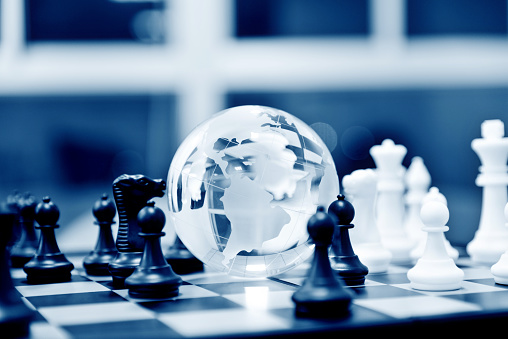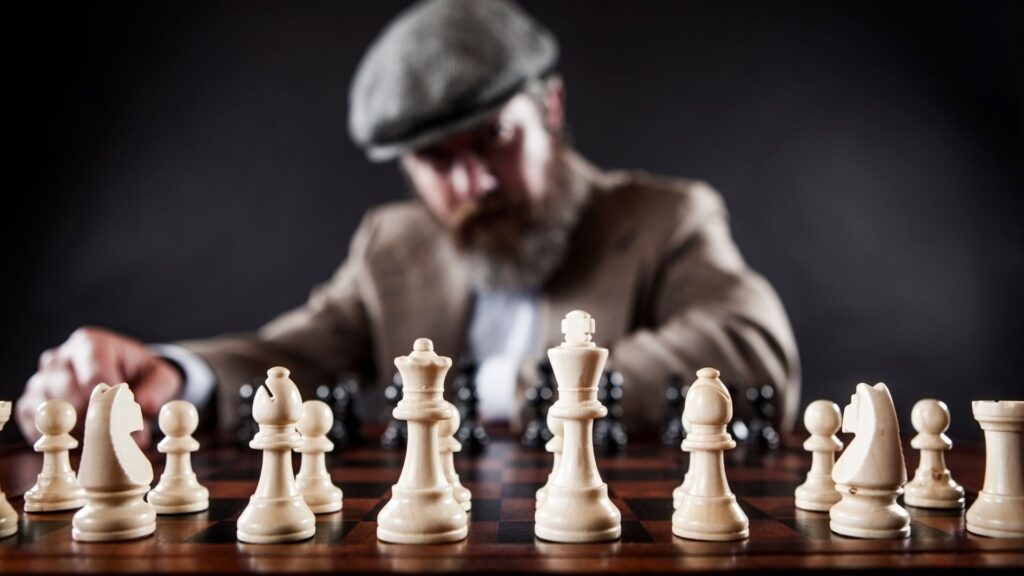When most people think of sports, they think of activities like football, basketball, and soccer. These are all physical sports that require a lot of athleticism and skill. However, there is another type of sport that is often overlooked: chess.
Though chess may not look like your typical sport, it actually requires a great deal of skill and physical energy. Like any sport, chess requires practice and dedication in order to improve. Players must meticulously plan each move, taking into account the possible reactions of their opponents.
This strategic thinking helps to improve problem-solving skills and promotes creative thought. In addition, chess players must maintain focus for long periods, as a single match can last several hours.
As a result, chess can be both mentally and physically demanding. Though it may not be as widely recognized as other sports, chess is a truly unique and challenging activity.
In this blog post, we will discuss some of the reasons why chess should be considered a sport. We will also look at the mental and physical challenges of playing this game.

Contents
Why is chess considered a sport?
Chess is often seen as a game rather than a sport, but there are many good reasons why it should be considered a sport. It promotes concentration, strategic thinking, and planning. Even the International Olympic Committee has declared chess a sport for these reasons and others.
Dictionary.com defines sport as “an athletic activity requiring skill or physical prowess and often of a competitive nature.” We see two players competing in some top-level events. In every sense of the word, they are true athletes because they burn calories as a sportsman burns calories during athletic activity.
Similarly, it requires skill to play because every piece moves in a particular direction. When both players are good, it turns into a highly competitive activity. All these qualities solidify chess as a sport.
Chess is physically demanding – (it takes a lot of energy and stamina to play well)
When we play chess, we use maximum brainpower to battle our opponent and expend a lot of energy, which burns calories and can lead to weight loss for some competitors.
Sometimes chess games can last many hours, even up to 24 hours, which requires stamina to play well. Karpov lost 22 pounds during his World Championship match because of the energy he exerted during his games.
Chess players must have excellent strategic thinking skills –( they need to be able to visualize the board and all possible moves)
In chess, there are 16 pieces on the board, each of which is limited to a particular type of movement. You make every move to capture the king and prevent your opponent from capturing your king.
Memory, focus, calculation, and planning are the essential talents of a chess player. Chess players need to be creative since they must solve problems while opponents try to undo their efforts.
Chess is a mental sport – (players must stay focused for long periods)
Chess is a mental sport when you play. It increases your mental capability because, at that time, you only focus on your game. However, it takes time. It is essential to choose a place and time when exterior distractions are at their minimum. Pick a period during the day when no one else is around to disturb you.
Chess is one of the few games that engage both cerebral hemispheres. Concentration is improved when the brain is busy. It is a game that fosters mathematical thinking and inventiveness.
There are many different levels of chess, from beginner to grandmaster.
Chess is a game that players of all levels can enjoy. While there are many professional grandmasters, beginners can also enjoy chess. In fact, one of the great things about chess is that it can be played at whatever level the player is comfortable with.
For example, beginners may want to start by playing against someone of a similar level, while more experienced players may wish to challenge themselves by playing against a grandmaster.
There are also many different levels of chess tournaments, so players can compete at whatever level they feel comfortable with. Chess is an excellent game for people of all levels and abilities, and there is always something new to learn.
Here is a look at some of the ways chess players are classified. Chess annotation, like class B, C, and D, relates to your skill level. In class B, you can consider yourself an advanced, amateur player. In 2000, you’re going to consider yourself an expert, which is class A.
If you want to become a national master, travel a lot. You have to be just trying to play against new styles, playing against players that are better than you all the time. If you go beyond this, you will have a chess master title.
However, to earn this title, you must be ranked in the top 2200 UFCF in the country. You’ll be referred to as a “National Master,” and the letters NM will appear before your name. If you have a FIDE rating of 2200, your name will be preceded by the letters CM, which stands for Candidate Master.
The next title is called “FIDE Master.” To get this title, you have to have a 2300 FIDE rating. And you will have an FM prefix before your name. After the FM prefix, the next title is an International Master.
The most prestigious chess title in the world is Grand Master. Its requirements are similar to the International Master’s requirements, but with a few extra steps.
Chess is an international sport.

Chess is one of the oldest and most popular games globally, with a history that stretches back centuries. Today, it is enjoyed by millions of people of all ages and from all walks of life. While it is often seen as a quiet, cerebral game, chess is also an international sport, with tournaments being held worldwide.
Chess players come from every continent, and the game is a popular spectator sport as well. Chess has even been used as a tool for diplomacy, with matches being held between representatives of different countries.
In recent years, chess has undergone something of a renaissance, with new generations discovering the joys of this timeless game. There is no doubt that chess is here to stay – it truly is an international sport.
Chess teaches essential life skills (such as how to plan and deal with failure)
Chess is often seen as a game for intellectual elites, but the truth is that it can be enjoyed by anyone who wants a good challenge. Chess is not only a fun pastime, but it can also teach important life skills.
For instance, chess requires strategic thinking to succeed. Players must plan several moves ahead, taking into account the possible actions of their opponents. This skill is valuable in many real-world situations, such as business negotiations and military strategy.
Chess also teaches patience and discipline, two essential qualities for success in any field. Finally, chess is a great way to meet new people and make friends. Chess clubs are found in nearly every city, and tournaments provide an opportunity to travel and see new places.
Chess has always been known as “the game of kings.” It teaches us planning, flexibility in changing strategy, forecasting, planning, and decision making. That is why the game’s originators used the rules of the Kingdom to play this, especially to make strategies in the case of wars and battles.
It stimulates the brain area responsible for planning, judgment, and control and helps find solutions to real problems.
Does chess help with other sports?
Chess is often thought of as a game for intelligent people, but it can also be helpful for athletes. Chess requires strategic thinking, and many of the necessary skills for chess are also valuable for other sports.
For example, both chess and basketball require players to think several steps ahead. Chess also helps with hand-eye coordination and problem-solving skills. In addition, chess can teach athletes how to control their emotions.
Chess players need to stay calm under pressure, which is a valuable skill for any athlete. So while chess may not be a traditional athletic activity, it can still positively impact athletes.
Research suggests that people who play chess have an increased capacity to learn. Chess may even help improve memory and overall cognitive function. In this way, it is a perfect activity for a positive connection and to improve your mental health.
When you are mentally healthy, you take part in extracurricular activities, and in this way, it helps you play many other sports. You can’t play any sport if your body is in shambles.

Why is chess a game and not a sport?
Though it is commonly referred to as a game, chess is not technically a sport. This is because, unlike traditional sports, chess does not involve physical activity. Instead, it is a board game that requires mental prowess and strategic thinking.
Chess has been around for centuries, and it continues to be popular today because it provides a unique challenge. Players must use their brains to outwit their opponents and achieve victory.
For many people, this intellectual stimulation is more enjoyable than physical activity. As a result, chess remains a popular pastime for people of all ages. Though it may not be physical activity, chess still requires skill and precision. You can argue that it is more of a game than a sport.
The stress of chess can damage the mind, body, and soul at times. It encourages unhealthy habits such as alcoholism, extreme arrogance, and vindictiveness and fosters the development of mental illnesses.
